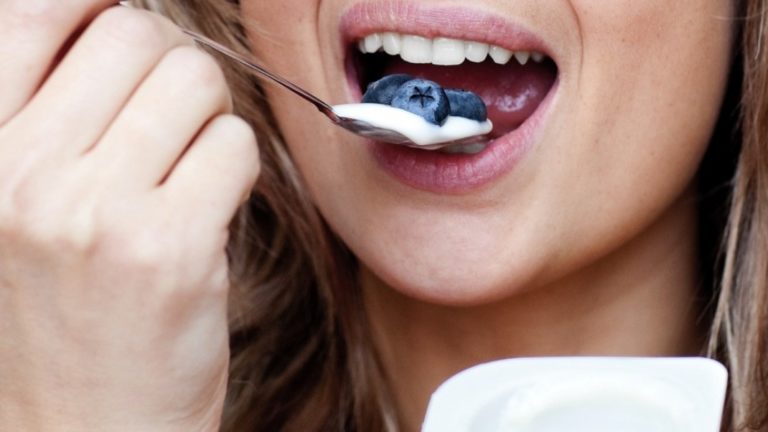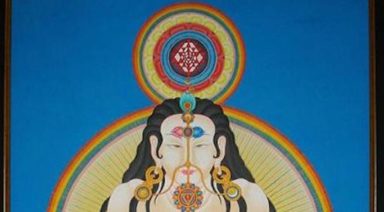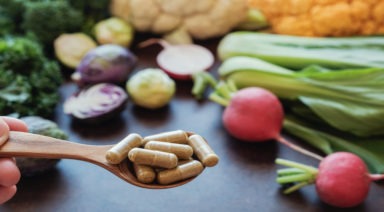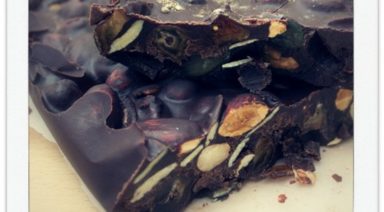Alternative Healing for IBS and Chronic Digestive Disorders

Today, the increase in people being diagnosed with Irritable Bowel Syndrome (IBS) and Irritable Bowel Disease (IBD) is quite alarming. As someone who has suffered from digestive problems her whole life, having been diagnosed with Crohn’s disease, I know all too well the complications of having a chronic digestive disease.
Not only is it debilitating on the physical body, but also on the mind and spirit.
IBS is known as a chronic complaint of stomach pains, bloating and cramping, and a change in bowel habits such as chronic diarrhea or constipation. It is most commonly diagnosed in people who internalize stress and anxiety, have suffered from a traumatic or stressful event, and in those who have a nutritionally deficient diet.
IBD includes a more serious group of conditions (Crohn’s disease and Ulcerative Colitis) and results in inflammation of the colon, small intestine and overall digestive system that can cause a whole host of symptoms including: blood and/or mucus in stool, chronic diarrhea, fever, chills, headaches, weight loss, inflammation in other areas of the body (joints and/or eyes), nausea, chronic fatigue, depression and an overall decreased quality of life. IBD has been linked to people who have had a previous parasite and/or who were frequently prescribed antibiotics.
Antibiotics wipe away both the good and bad bacteria, resulting in a weakened immune system which then leads to inflammation. It is also linked to those with a family history of the condition, [those who internalize stress]/video/quickie-stress-relief) and anxiety and those who eat a nutritionally deficient diet.
In both IBS and IBD, the mind and body are connected; however, it’s unclear which symptom started first. Did the mind affect the body or did the body affect the mind? Either way, we know they are intertwined and that we have to heal the ‘whole’ person in order to improve the condition of any ailment.
Despite all of the information out there, it is still difficult to find a known cure for IBS or IBD that helps to heal the ‘whole’ individual. Medications and surgery are often prescribed to physically help with the symptoms, but there is a lack of knowledge out there on how to help people to naturally heal through yoga, Ayurveda, meditation, pranayama and eating whole foods. What I have found, through my own experience, is that there is a link between the body and what is going on in your life and in your mind. When we nourish the body, mind and soul, we can heal a whole host of diseases and illnesses.
If you look at these digestive complications from an Ayurvedic perspective, they are both Pitta/Vata complications with different degrees of severity. Balancing these doshas by calming the Vata mind and developing a beautiful self-care routine to reduce the inflammation (Pitta) are the most important aspects of healing. After I was diagnosed with Crohn’s disease in 2009, I was told by my doctor (and several second opinions) that I would be on medication for life. I was not satisfied with this prognosis. While I totally agree that medication may be initially necessary, I believe that anyone can slowly decrease their medication and eventually live a happy and healthy lifestyle with the appropriate education.
One day during a flare up, I was reading and came across a book called “Perfect Health” by Deepak Chopra. It was there that I realized that I could heal myself of my IBD and live a life free of suffering and medication. This is also where I first really immersed myself in the concept of mind/body healing. Since then, I have slowly decreased my medication to nothing and have not had a flare up in over 6 months. Although not completely cured, I “feel” cured, healthy and happy.
I attribute my health to following a life based on Ayurvedic principles while eating a plant-based diet.
Practices which have helped me to heal:
-
I live a life full of love, compassion, empathy.
-
Eat a sattvic vegan diet with mainly cooling herbs and spices.
-
Practice mindfulness meditation
-
Pranayama: Ujjayi breath and alternative nostril breathing have provided significant and positive changes in my lifestyle to reduce my symptoms.
-
Yoga: I practice beautiful restorative yoga poses which open up the lower spine, eventually leading to many forward bends and abdominal twists. This has helped significantly.
My mind has become calm, my diet has become pure, my soul has become nourished and my body has become healthy. I want to inspire others to heal themselves, so I hope I have inspired you. It takes some hard work and dedication that some might say is extreme, but taking medication and surgery seems a lot more extreme to me. I am now thriving rather than surviving.
Gaia's Top 10 Videos on Holistic Health and Lifestyle

How do you discover your own path of well-being and vitality to achieve optimal health? The road is different for everyone and is an enduring, life-long mission. We invite you to sit with experts, from various health-related fields, who share the fruits of their research on nutrition, supplements, dentistry, detoxing, and unlocking our full health potential. What you may discover could change every aspect of your life.
1. The Gut Movie
In The Gut Movie, we follow the journey of journalist and researcher Kale Brock as, in the quest to discover whether the “optimal microbiome” does indeed exist, he travels from Australia to Namibia to live with The San, an ancient hunter-gatherer people living traditionally from the land. During the excursion, Brock monitors his own microbiome and how it changes in conjunction with the new surroundings and takes microbiome samples of The San to gauge the significant differences in microbiota present across cultures.
With expert commentary by leading gastroenterologist Professor Thomas Borody, molecular geneticist Dr. Margie Smith, immunology researcher and expert Professor Mimi Tang, naturopath and chiropractor Dr. Damian Kristof and others, The Gut Movie provides an insightful yet entertaining look at the explosive research of the gut and its impact on human health.





































